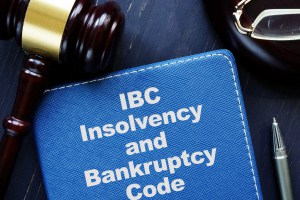Bankruptcy in Singapore

This is a last resort when an individual is unable to repay a debt of more than $15,000. They or their creditors may file for a bankruptcy application with the high court.
Consequences to being declared bankrupt are restrictions to travel overseas, managing a business or acting as a director in a company and may face difficulties in obtaining a loan or even securing a job.

One is advised not to ignore creditors’ calls, letters and court documents requesting for payment as you may still be made a bankrupt should you choose not to respond. However, when you have exhaust all means to repay your debts, bankruptcy is the last resort.
When you are made a bankrupt by the high court, either a private trustee or official assignee will be appointed to administer your financial affairs. They will discuss with the creditors on the monthly repayment and this will be determined by the bankrupt’s income and expenses.

When there are debts involved, liquidation will always comes to mind. This is a process where assets are seized and sold, the proceeds will be used to pay off debts.
From a company point of view, purpose of liquidation is to ensure a just distribution of company’s assets among creditors and contributories or to terminate the company’s existence by its eventual dissolution. When a company wound up, the business will cease to operate and its assets and affairs are handed over to an independant liquidator who is regulated by the Insolvency, Restructuring and Dissolution Act 2018.

The rights of unsecured creditors over the company’s assets are virtually “frozen” upon the commencement of the liquidation to avoid a further deterioration of the company’s financial position and proliferation of its liabilities.
Any surpluses will then be distributed to contributories of the company.
Some ways to wind up a company will be
- The shareholders’ voluntary contribution to paying its debts within a period of 12 months from the commencement date of winding up.
- Creditors’ voluntary winding up.
- Compulsory winding up. This is where the company will present themselves to the High court for winding up as an inability to pay its debts.
- Realisation of assets.
This includes cash in hand/cash in banks and all other financial institutions, sale of office properties, call of unpaid capital and recovery of assets.
Sometimes business owners may even consider liquidating their own assets such as sale of their personal cars, investments or even insurance policies.
Sale of insurance policies may minimize your losses as compared to surrendering them to insurers and one may even receive cash immediately, if not within few days. This works best for individuals who are in need of urgent cash.









